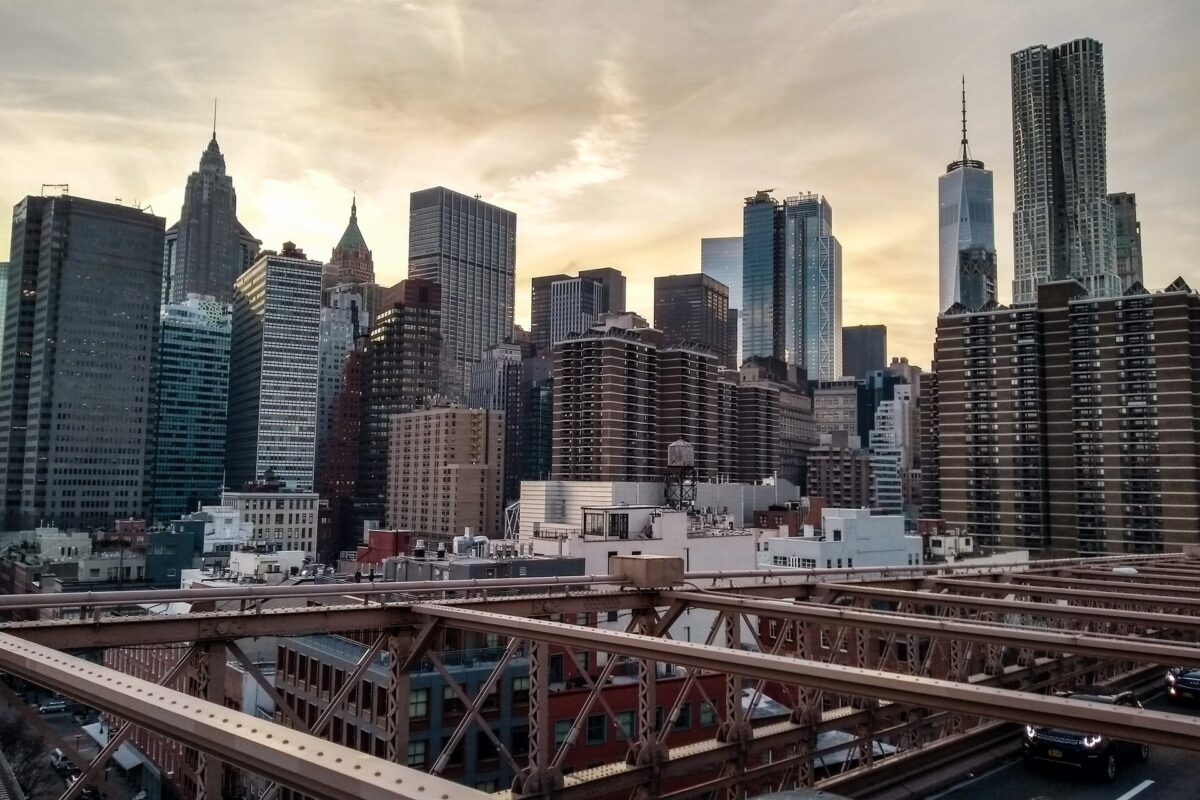NYC Airbnb Hosts Explore Alternatives As New Bookings Are Blocked

Photo Credit: New York City has told short-term rental hosts to register their listings. Pixabay / Leonhard Niederwimmer
Skift Take
New York City is a bit late to the game compared to other tourist cities that have implemented Airbnb restrictions, but there are certainly more to come.
Hosts of at least 23,000 short-term rentals in New York City are being forced to reevaluate or end their businesses as Airbnb blocks them from making new bookings.
The city will start enforcing a law on September 5 that requires short-term rental owners to register as hosts, and Airbnb is blocking them from making new bookings after that date unless they have approval.
Local Law 18 passed in January 2022 after roughly 10 years in the making, according to Michael McKee, head of Tenants Political Action Committee, which is a member of the Coalition Against Illegal Hotels, a group that participated in writing the legislation.
Registration is meant to force hosts of short-term rentals to comply with long-standing laws to publish listings on Airbnb and other platforms. Among several requirements, registered hosts can only book stays for fewer than 30 days and must be present during the guest’s stay. Violators face thousands of dollars in fines.
“We believe that over time, over the next year or two — probably two years — essentially, this will eliminate illegal hotel activity in New York City,” McKee said.
After its appeal was dismissed, Airbnb finally informed NYC hosts that they would have to comply, or their listings could be deactivated. Now, many hosts are scrambling to save short-term rental businesses that, in some cases, generate tens of thousands of dollars or more in monthly revenue.
What Comes Next
Skift reached out to more than 30 hosts through the Airbnb and Vrbo platforms, as well as several short-term rental groups on social media. The majority declined to comment.
One host, who agreed to speak but asked to remain anonymous, said he is now unable to book multiple units through Airbnb, but plans to continue renting them out in other ways.
“I'm creating my own system to bypass Airbnb,” he said. “And it's secured and backed up because I have so many clients. I don't even need Airbnb. I could run my business off of just my referrals and off of my recurring clients.”
He said the short-term rental business is his main source of income and funds some events and activities related to a legal business he owns in the city.
Tom DeRose, who used to own eight Airbnb short-term rentals in New York City, understands why most hosts do not want their names published.
“If I was doing this, I absolutely wouldn't be doing an interview,” DeRose said. “What they're doing is illegal. And what I was doing at the time was also technically illegal. I'm comfortable speaking about it because it's no longer happening.”
DeRose, who now owns a long-term rental business primarily for international students, said he had discontinued all of his short-term rentals by the start of this year because of Local Law 18.
When he was a short-term rental host for those eight apartments, DeRose first signed traditional long-term leases with the aim of renting them out for more money – a practice called "rental arbitrage."
He said he made an average of roughly $30,000 per month after paying his long-term rent bills but before any other expenses like cleaning. During one particularly good month, he said he made about $10,000 from one apartment.
And there are people now with much bigger businesses. One of the hosts who declined an interview has 53 listings on Airbnb and has amassed nearly 2,000 guest reviews over three years. One member of a social media group for short-term rental owners posted that he has $100,000 worth of bookings through December.
DeRose said he wasn’t aware of the social issues that short-term rental businesses can cause, namely taking units off the housing market, a sensitive issue in places like New York City where there is a shortage of affordable housing.
There were 23,000 active Airbnb listings in New York City in July, according to data provided to Skift by AirDNA. Of those, about 7,500 are whole units that are at risk of being deactivated permanently. Airbnb has said it generated $85 million in revenue from New York City in 2022.
“My opinion right now on Airbnb is that arbitrage in any city that claims to have a housing crisis is unacceptable. It should 100% be banned.”
Caught in the Crossfire?
Ainslie Binder told Skift she has been renting two rooms in her house in Brooklyn through Airbnb for seven years, and she believes they are in compliance with the latest law. She has not heard about the application she submitted in early July, however, and Airbnb has blocked her from being able to accept additional bookings.
As of Monday, the city had approved only 257 short-term rental host registrations out of 3,250 applications.
Gary Hernandez, a sanitation employee, has been waiting since June — though he told Skift he expects his application to be declined.
He has been managing an apartment listing on Airbnb for a few months on behalf of his parents, who have owned a duplex in Queens for the past 30 years. They have been renting out the other half of the duplex to supplement the $30,000 they collect annually in Social Security. They charge $130 per night and it’s rented about 90% of the time, he said.
Hernandez’s parents do not want to rent on a long-term basis through Airbnb — legal under Local Law 18 — or through a traditional lease because they are nervous about laws that protect squatters after 30 days of residence.
Without a short-term rental permit, they’ll likely sell the house and move to Florida near their other son.
That’s where Hernandez believes that the law can be harmful to long-term residents, not just the larger companies that he believes should be the ones targeted.
“They're not looking to get rich. They're just looking to be able to afford to stay in the house,” Hernandez said. “I get why [the city is] doing it, but they're punishing the people that aren't doing it to make money.”
There is now a coalition called Restore Homeowner Autonomy And Rights (RHOAR) that’s fighting for a change to the latest law that would exclude single-family homes and duplexes from needing a short-term rental license.
The coalition says it’s made up of hundreds of owners, and nearly all of them rely on short-term rental income.
RHOAR's website says that 94% of those homes are owner-occupied, 27% of members make less than $75,000 per year, and 48% have owned their homes for more than 11 years.
“We advocate for the return of our rights and autonomy, so we have the flexibility of short-term rentals to afford and maintain our homes,” the organization’s website says.
McKee, however, does not expect their effort to pay off because they would have to change state laws and more to legalize those types of short-term rentals.
“We're going to oppose it tooth-and-nail,” McKee said.
“I'm not sympathetic to the owner of the duplex who wants to hold their unit empty so their family members who live in Texas can come once a year and stay with them, and the rest of the time they're renting to tourists. As far as I'm concerned, they can rent to long-term tenants and put those units back on the residential rental market.”
Just before the pandemic, there were as many as 30,000 short-term rental hosts in New York City who owned only one apartment, according to Murray Cox, founder of Inside Airbnb, an activist organization that aggregates data to show the effect of Airbnb on certain cities.
“But they were taking 20,000 or 30,000 units of housing off the market,” Cox said. “New York City is in a housing crisis, and so it needs every housing unit that’s available.”
A Long Time Coming
McKee said he and others have been fighting against “illegal hotels” in New York City since 2004, four years before Airbnb was founded.
The latest law was modeled after a similar law in Santa Monica, California. After an ongoing legal battle between Santa Monica and Airbnb, a Ninth Circuit panel dismissed the case in 2019. McKee said that law has virtually eliminated illegal short-term rentals there, and it’s worked similarly in San Francisco.
Specifically, the law prohibits Airbnb and other platforms from entering into a transaction with a host who does not have a valid registration number.
That was how legislators got around a defense that Airbnb and social media platforms have been using for years, citing section 230 of the Communications Decency Act of 1996, which protects publishers from liability of users’ content.
Airbnb is refunding fees associated with reservations in New York that begin on or before December 1 — but not canceling bookings already made — in order to comply with the latest law. Unlicensed reservations that begin after that date will be automatically canceled and refunded.
McKee expects that hosts will do what they can to circumvent the law, including making their own websites.
“That's the kind of thing that the city will have trouble enforcing, but it doesn't mean the city won't go after them. If someone files a complaint against them, the city will investigate,” McKee said.
New York City's Office of Special Enforcement said recently that there were nearly 12,000 citizen complaints about illegal short-term rentals between 2017 and 2021, and the office issued 15,000 violations during that period.
Based on conversations he has had with others still running illegal short-term rental operations, DeRose agrees that some people are going to continue skirting the law as long as possible.
“I think they're going to keep doing it until the city knocks down their door,” DeRose said.



